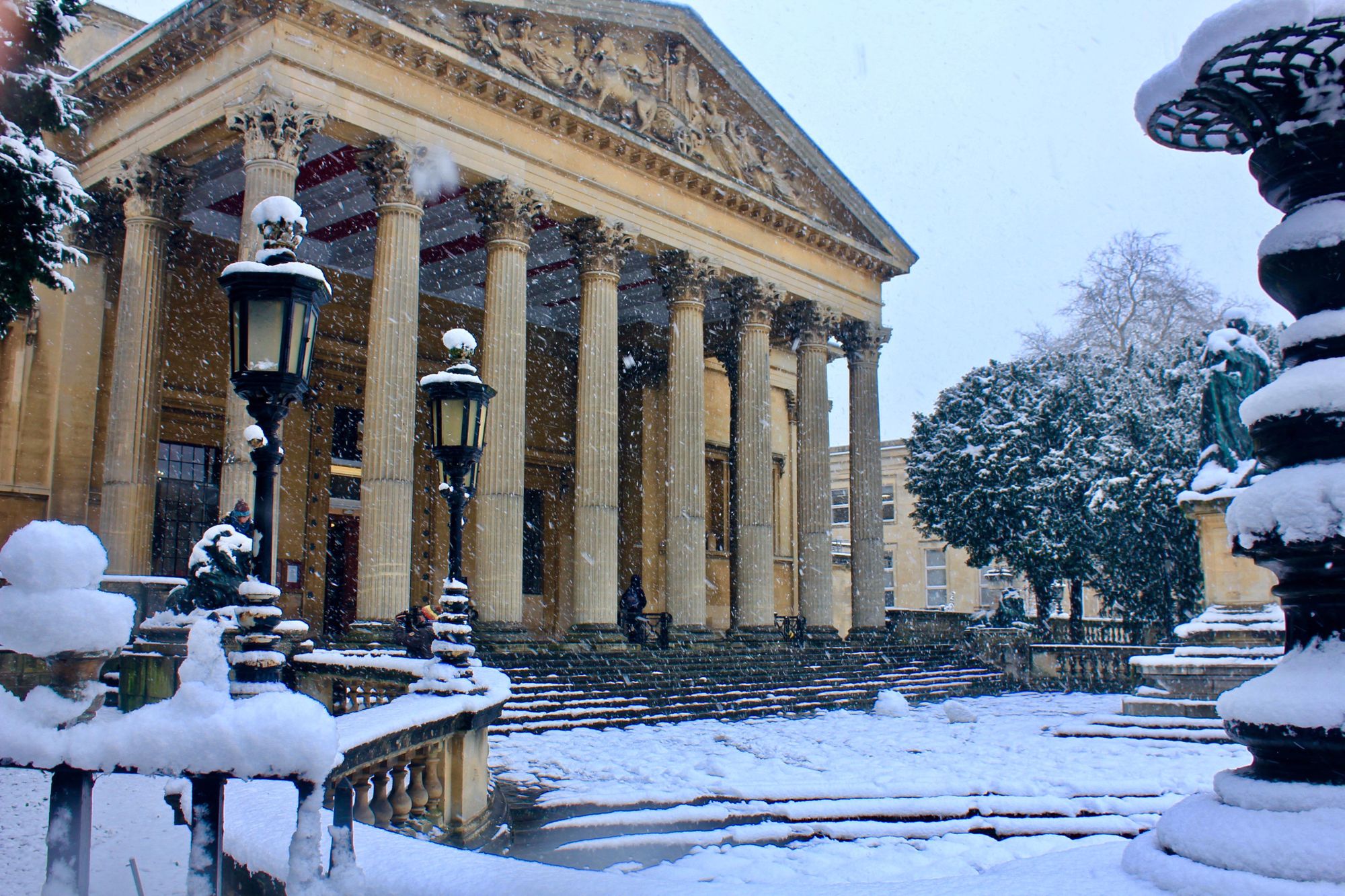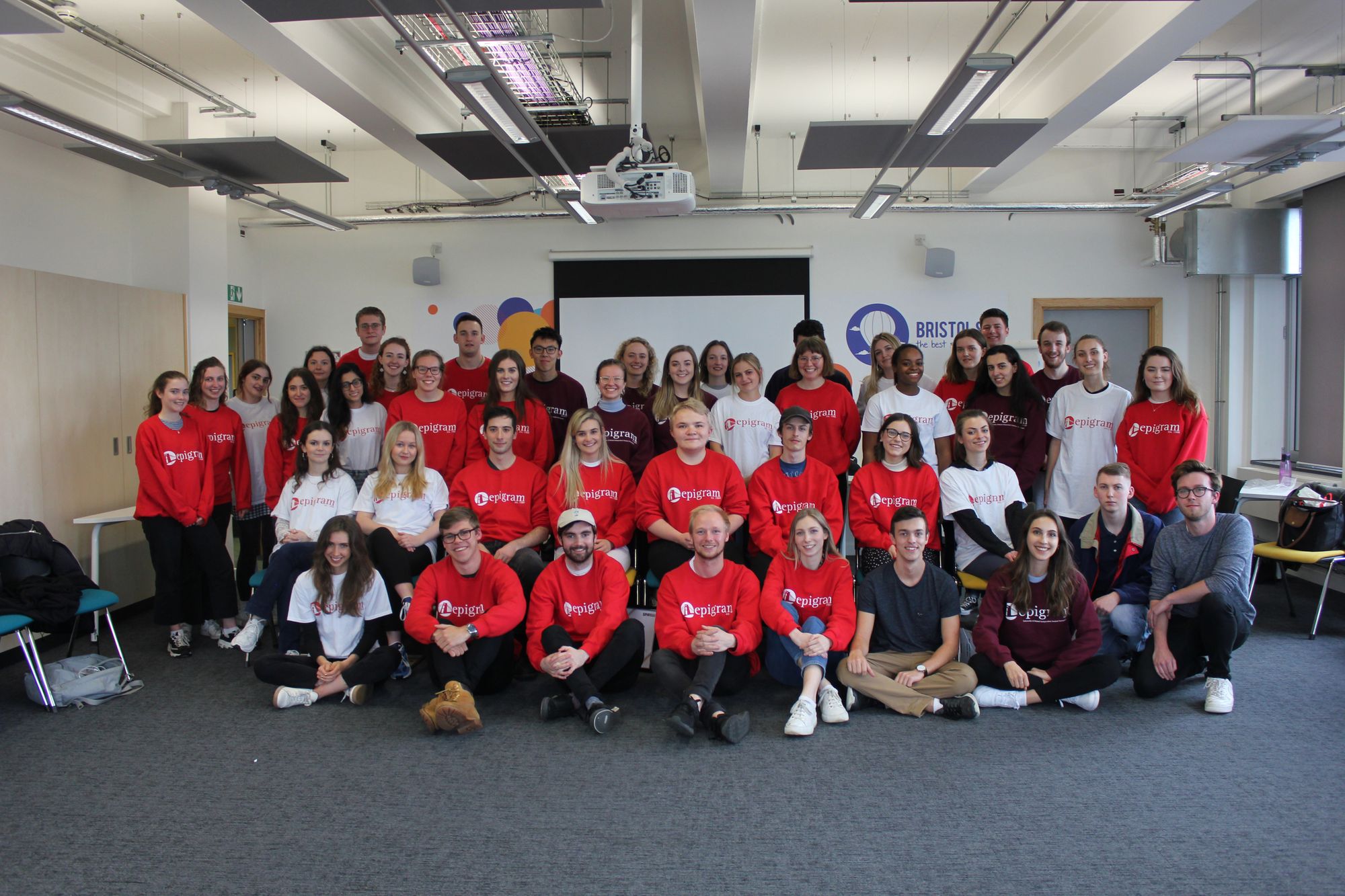By Cameron Scheijde, Co-Editor-in-Chief 2018-19
Nearing graduation, Epigram's Co-Editor-in-Chief of the past year reflects on what he will miss from the past three years at the University.
As the last few students stay to the end of their leases or work summer jobs, those of us finishing our time at Bristol can look back and, for the first time in three hectic and fast-moving years, reflect on the time we have had in this new city and world-class University.
I can only speak for my own personal experience. For every individual, their Bristol experience will have been different. The halls you were put in, the course you chose and the societies you joined will have had a profound effect on the Uni experience you’ve had over the years. Though there have been very difficult times, I can thank Bristol for three of the best years of my life.
When working for Epigram, it is important to maintain a strong sense of cynicism to hold the Uni and the SU to account properly. Now released from these bonds, it is also important to note the good work that both do. Here are the three things I’ll miss most about studying at Bristol.
1. Hall life
Much has been written and discussed about the quality and affordability of Bristol’s first year accommodation. These concerns are extremely valid. However, my halls experience was overwhelmingly positive, and I am sure many - especially those who shared my hall - will have had the same experience.
In the catered Clifton Hill House, the most incredible community of warm and welcoming students made me feel instantly welcome. Despite an aversion to large social gatherings, it was more or less easy to establish a strong and incredibly reliable group of friends early on. We would spend hour after hour in the dining hall chatting and laughing while others left and joined our table. There were Christmas concerts and termly formal dinners and balls, as well as quiz nights and comedy evenings arranged by what must have been the keenest JCR committee in Bristol.
Choosing to live with hall friends in second and third year was also a good move, as the friendships we’d established could grow. Being in a Clifton residence was a stroke of luck, but I will nevertheless miss the strong and amiable community fostered there.

2. My course
I chose Bristol because I happened to be the only one who turned up to a post-offer visit day and got a one-on-one with a senior lecturer. It was here that he convinced me of the strength of the course (Politics and International Relations), and I am glad I was won over. From my first lecture to my last (which, as it happened, were delivered by this same lecturer, Dr. Torsten Michel), I have felt part of an engaging and friendly academic community.
Even though our first year lectures were delivered to hundreds, a lecturer would still see me on the street and ask whether I was coming to her next lecture. In second year, where you get the chance to study in much smaller groups, lecturers and academics try to get to know you and your research interests. In one lecture, the lecturer held a mini ‘awards’, giving each person a book relating to their interests. Good to know our tuition goes somewhere.
As a part of this, those who you spend most time with become important allies in what can often be a stressful and difficult time, especially when deadlines and exams start to pile up. Both my dissertation supervisor and personal tutor were helpful and friendly. I speak with complete truth when I say that in my three year degree, I did not get one duff lecturer. Each unit was well planned and meticulously taught. One Politics lecturer has even been banned from winning teaching awards to give others a chance.
From the excellence of its research to the strengths of its teaching, my school was an academically stimulating and friendly environment from the start. I sound like I should be writing Uni marketing materials, I know, but it is no word of a lie.

3. Societies
For all the flack it receives, Bristol is lucky to be blessed with a large and active SU. This past year, being Editor of Epigram, you basically become a member of SU staff as you work so closely together (both literally and metaphorically). The staff work incredibly hard to deliver excellent facilities and provisions for every society and group. Whether it’s the Best Society in the country, CHAOS, the award-winning BME network, or small and crucial campaigns such as the ‘Trans Allies on Campus’ campaign, students have plenty of choice to get directly involved in union life.
Societies serve many purposes, the most important of which is surely providing a welcoming and inclusive community for its members. I have been lucky to find a home at Epigram, while for others it's the loud and rambunctious PantoSoc or the activism of Support Our Services. These societies help you foster community and develop your hobbies in a way you cannot in the real world, and students should make use of these excellent services while you still can!
For every graduate, graduation is a scary yet exciting time in our lives. But I will always look back at my time at Bristol with fondness, and miss those who helped to make the lives of their students better. While no student is a stranger to criticising the Uni, the staff who help make the Uni and the SU become the welcoming and inclusive places they should be deserve every compliment they can get. Farewell, Bristol, I’ll miss you dearly.
Featured Image credit: Epigram / Cameron Scheijde
Are you sad to be graduating from UoB?









